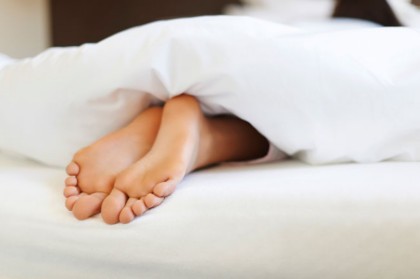
If there was a cure for a bad night’s sleep (no prescriptive sedatives, thanks!) we’re sure this would be the most popular product/treatment going around. Why? Because many of us just can’t.get.no.sleep. We’re putting it down to things like longer work hours, the influence of the digital world and increasing complex life issues — just to name a few!
But as we know, a busy mind is the enemy of sleep. And according to recent stats from Roy Morgan Research, 12 per cent of the population (that’s 2.1 million Aussie adults) have reported they’ve suffered frominsomnia over the last year, with it being more common in women (16 per cent) than men (8 per cent).
For anyone who’s spent most of the night with their eyes-wide-open would know how little sleep can affect their health. Things like weight,concentration, immunity and mood all suffer. Even the research will agree, insomniacs are more likely than the average Australian to have a BMI (Body Mass Index) classified as obese (33 per cent vs 26 per cent), as well being prone to anxiety, depression and stress.
Group account director at Roy Morgan Research, Angela Smith says, “The gender imbalance among Australian insomnia sufferers is startling: two-thirds are women! There are several reasons behind this female skew, including the nocturnal demands of new motherhood, hormonal cycles, and an increased tendency towards anxiety, stress and depression than men.”
“It makes sense, then, that women who experience insomnia are more likely to be affected by these three mental-health conditions than male sufferers, although the incidence of these conditions is well above average for both genders.”
“But there is also a chicken-or-egg dimension to this scenario, in that insomnia could conceivably be the cause OR consequence of anxiety, depression and/or stress. For example, our data reveals a higher incidence of insomnia among people who are separated or divorced. The breakdown of a marriage is usually a stressful or depressing experience, so in this case, the insomnia would almost certainly be a consequence.”
Insomnia can be a serious medical condition and a complex one at that. So if you’re struggling to catch some ZZZ’s, it’s best to consult your medical professional to find some relief that will suit you.
Source: bodyandSoul
 We are sharing information for knowledge. Presented by. SocialDiary.Net
We are sharing information for knowledge. Presented by. SocialDiary.Net



